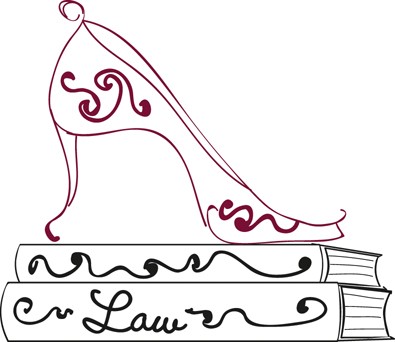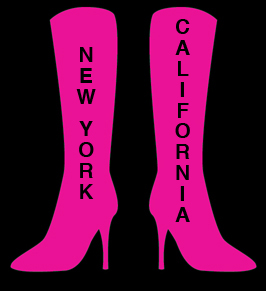I am often asked about my fashion blog, Fashion Nexus, mainly how it all started and what do I blog about? Law school and specifically Fashion Law is the main reason my blog even exists. And I of course say my blog is different than others out there because I not only discuss fashion, but also fashion law. This inevitably brings out the questions — What is fashion law??
I’ve briefly written about this topic before — discussing how it’s a multi-disciplinary type of law that encompasses contracts, corporations, intellectual property (trademarks, copyright, design patents, etc.), and more. I then went onto discuss the growing programs solely dedicated to this type of work, this type of practice, from schools on the east coast such as Fordham or NYLS, to schools on the west coast, such as Loyola. I discussed the types of courses you could expect that relate to fashion law — Fashion Law & Finance; Fashion Ethics, Sustainability, & Development; Fashion Modeling Law; Fashion Retail Law; and Fashion Law Business Transactions.
I now want to further discuss the issues that arise with fashion law, specifically some hot topics from recent panel discussions and future ones. The NYC Bar held a panel in March, with a focus on “Preparing for the Runway”, a discussion of various legal issues related to preparing for and producing fashion shows and presentations, including intellectual property, employment, contractual and financing concerns.
Actually, I plan on attending the Fashion Law Institute’s 5th Annual Fashion Law Symposium thru Fordham University. The topics to be discussed will be as follows —
- Purchasing Power: Mergers & Acquisitions and Fashion Investment
- Pulling the Plug: Fashion Companies, Dissolution, & Bankruptcy
- Power Dressing: Politics, Dress Codes, and the Public Eye
- Power Centers: Battling Across Jurisdictions in World War IP
- Connectivity: Modeling and the Power of Social Media
- The Power of 2: Licensing and Wearable Technology
I plan on fully reporting on the event and look forward to having my Fashion Nexus readers learn even more about this area for which I am so passionate about. The Fashion Law Institute, in addition to various events throughout the year, also conducts a Fashion Law Bootcamp every summer. It’s now a bi-coastal summer session. The program is run by Professor Susan Scafidi, Founder and Academic Director of the Institute, who pioneered the field of fashion law. She is the first professor to create a course in the area
Participants attending Bootcamp will explore diverse areas that affect the fashion industry and are at the heart of the Fashion Law Institute, including intellectual property, business and finance, international trade and government regulation, and consumer culture and civil rights. Within these categories, specific topics include the protection of fashion designs, counterfeiting, licensing agreements, fashion financing, garment district zoning, real estate, employment issues from designers to models, consumer protection, sustainability and green fashion, import/export regulations, sumptuary laws, and dress codes.
These topics are all actual in the field of fashion and are exactly where fashion law needs come into play. Varying issues arise everyday, from huge cases such as Louboutin and their quest for a trademark with their notorious red soles to trademark infringement with the Kardashians’ cosmetics line. It’s not even always about going to court. Sometimes it’s about the need to safeguard and plan ahead, such as when Stella McCartney was granted a design patent for one of her best-selling dresses.
Discussion in this area even can come out of the blue, such as with Lord & Taylor’s recent blogging campaign where 50 bloggers donned the same dress. The campaign was a smashing success as the look sold out. However, L&T failed to mention that these bloggers were paid to wear this dress, as did the bloggers themselves, which violates advertising requirements under the FTC. The major retailer could face fines for such actions. This is where a fashion attorney, likely an in-house counsel, should have stepped up to make sure that this advertising campaign complied with all governmental regulations. This likely won’t turn into an actual problem, but I use it as example to demonstrate just how easily these issues can arise and to show how this type of law is expanding and growing daily.
















